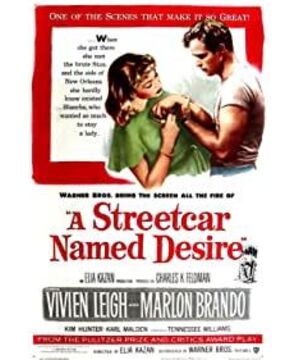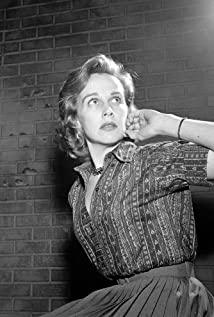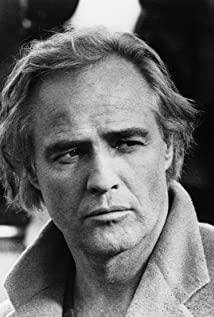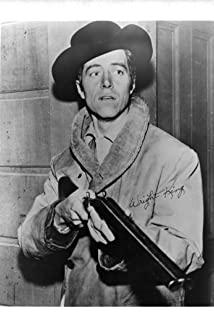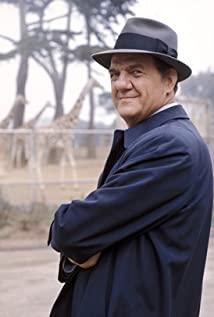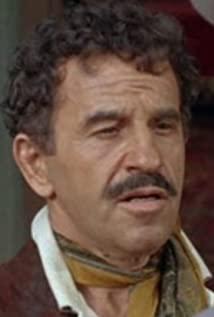After writing, I found that except for "Demon Rope" (8.0 points), "Cat on a Hot Tin Roof" (7.8 points) and "Midnight Cowboy" (7.9 points), they are all Top250 of IMDB. They were roughly in the top 250 for the first two years. The back wave of the Yangtze River pushed the front wave, and the front wave died on the beach. Ha ha.
1. The Bride of Frankenstein (1935) is
not inferior to the original sequel, and many people even say that this is James Whale’s best film. The Great Depression has just passed, and it has only been two years since King Kong climbed the Empire State Building. It can be said that Frankenstein and King Kong are modern freaks, but they are also non-socialized free subjects, providing an external perspective on human society. The story of the weirdo in Whale is the autobiography of an outcast, a radical refusal of female reproduction. A weirdo has the same body as a human, but because he was born in death instead of a womb, he was named Monster by the crowd. He didn’t understand and didn’t care about good or evil. It was the rejection of the crowd that made him crazy. The companion's bride also hated him, and nestled beside Frankenstein.
His figure wandering lonely in the wilderness is the silhouette of generations of similar people. They will live like monsters and die like monsters.
2. The Maltese Falcon (The Maltese Falcon, 1941) is the first
film noir, one of Bogart's two classics. Bogart's charm has never faded. This film shines in the sun. I have seen it and "Butterfly Dream" several times, but other articles mention details that I only noticed. Cairo's top-notch voice, he handed Sam Spade (Humphrey Bogart) gardenia's business card and his posture with his walking stick, all reminding him of his identity.
In the 1940s, Hitchcock’s two films "Butterfly Dream" (Rebecca, 1940) and "Rope" (1948) were also often cited as secretly crossing the boundaries in the same-sex restricted zone, rebelling against the Code of Hayes. "Illustration.
3. A Streetcar Named Desire (A Streetcar Named Desire, 1951)
Blanche (Vivien Leigh) is a social outcast just like Frankenstein. The happiness in the afterglow of life comes from the "kindness of strangers." She is as fragile as Tennessee Williams (author)'s South, and glass is as fragile (Williams also wrote "Glass Zoo"), but she pretends to be noble and reserved. She, or the graceful, long-defeated, dying Southern Plantation Civilization, was beaten to the ground by the brutality and vulgarity of her brother-in-law Stanley (Marlon Brando). Although Blanche and Stanley are opposing parties, they are projections of different aspects of homosexual personality in repressive situations: moral derailment, socially abandoned "sluts" and unlimited expansion of masculinity, and even "real men" who despise women ".
Behind Blanche, there was a former lover who shot suicide inexplicably. She could always hear the shot. She knew that she had hurt him before he would die. She was always condemning herself. The silent dead soul is also in Williams’s another masterpiece "Cat on a Hot Tin Roof" (1958). The anxious cat is Elizabeth Taylor, who cannot be forgiven by her husband, and Paul Newman. In the attempted derailment between his best friend and his wife, he didn't know which one he resented and which one he was jealous of.
4. Some Like it Hot (1959)
This and "A Streetcar Named Desire" are films that I always talk about but I have never said much about it. I started watching Billy Wilder from this movie. For the first time, I didn’t see what was so special about this legendary great comedy. It turned out that I saw "Sunset Boulevard" in the future. cute. Now I don’t want to understand why.
The last famous Nobody's perfect has been said by posterity. Forget who said that, the subtlety of this ending is that the old rich man Osgood answered accommodatingly for both men and women. Jerry, who was dressed as a woman, was hung in the air. He can't be a man or a woman. Osgood has a happy and content smile on his face. The story came to an abrupt end in the look of misunderstanding with Jerry.
It looks like a reunion comedy, but no problems have been solved, and it seems that there is no need to solve it.
I am convinced that Billy Wilder is an optimistic guy, he is one of the few optimists I love sincerely.
The same-sex story in "Enthusiasm as Fire" has nothing to do with passion and desire, repression and accusation, so no one needs to die. It has nothing to do with whether Billy is optimistic or not. Put it in this sequence to adjust the atmosphere.
5. When Spartacus (Spartacus, 1960)
veteran Crassus (Lawrence Oliver) let his slave Antoninus serve him in the bath, he frankly confessed that he liked eating snails and oysters, and said that it was a matter of taste, not morals. problem. It's a pity that Antoninus was unmoved and followed Spartacus instead. Crassus lost not only to Varinia, but also to Antoninus. The five-minute bathroom scene was cut because it was too suggestive, but Spartacus and Antoninus still complained to each other before they died, and the heroes cherished each other.
The director Lao Ku has always been less interested in showing comradeship. It may be that he realized that he couldn't avoid this angle when he reappeared in Rome. After all, women were not completely human at that time, and the supreme love only exists between people, that is, between men. They were not wandering souls. They were upright in their time. "Iliad" wrote that when Achilles was crying for Putlockles, Achilles' pain came naturally, and there was no ambiguity. No dull pain. The philosophers of Greece and Rome not only could not enter heaven in the Judaism-Christian world of later generations, but were even excluded from purgatory and could only sit in hell ("Divine Comedy•Hell").
6. Midnight Cowboy (1969)
After the abolition of the "Hays Code", under the attack of the large-scale social movement and the new wave of movies in 1968, the old rules fell apart, so this R-rated film has almost won the golden man. However, in this movie full of strong homosexuality, although homosexuals can appear publicly, it is an insignificant negative image. What is as bitter as the movie is reality.
Needless to say business cards. Many people love the end of the film's desalination process, the car drove to the warm end, and Rizzo (Dustin Hoffman) quietly died in the arms of Joe (Jon Voight).
Conclusion: I have
read "Pan Shen's Labyrinth" and I wanted to write a "sad movie" Dou Lie, but I found that the contents of Qicheng were a bit ambiguous. The more ambiguous, the more sad. However, the traditional one-way expression of heterosexuality hurting homosexuality in "My Private Ihoda" is biased and self-pity. In fact, we are just beasts in the big arena, hurting each other:
someone else recalled that back then After a dinner, he went outside and saw Lawrence Oliver and Marlon Brando kissing in the swimming pool, while Vivien Leigh was still indoors and chatting with people calmly. She must understand everything, the recaller said. And I can't forget Vivien Leigh's madness when she played Blanche and her wilted description before she died.
The history reviewed today seems to confirm some old claims: First, modern power establishes order by stipulating normality and abnormality, and there is always a small group of people who need to be designated as abnormal to reflect the normality of most people; then, Power disciplines are not just the few who are persecuted, but everyone—we don’t see the movies that they are not allowed to make; in the end, even if the high pressure of power hits men, it will also be transferred to women. Whether they are lambs, mothers, or sluts, they are more helpless than men. Helplessness is their passport to live in the world.
You and I ascend to the sky above the Colosseum in fantasy and look down. Perhaps one day we will enter a state of transparency and clarity. The perfect state of epiphany tragedy is that it is essentially comedy, such as Chekhov’s "Cherry Garden". For example, RTD's "Comrades Are Everyday People" (1999). Helplessly, I am still rolling in the earth of the mortal world and enjoy it. How about you?
2007.3.3
View more about A Streetcar Named Desire reviews


